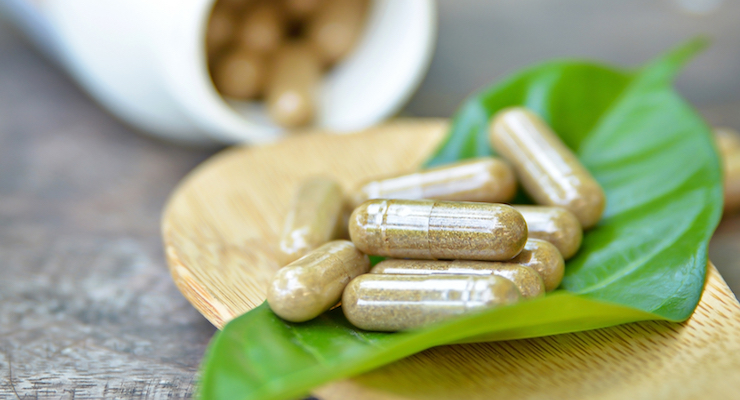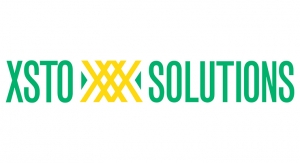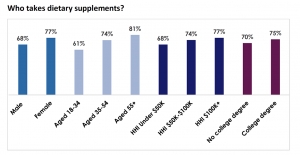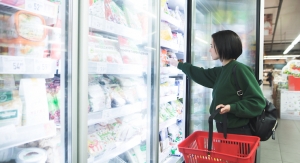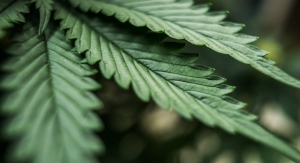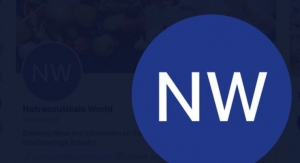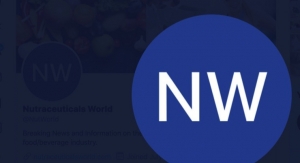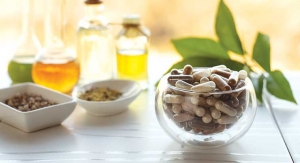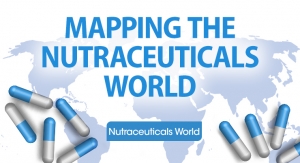09.01.20
According to the American Botanical Council (ABC)’s HerbalGram Market Report, consumers spent an estimated $9.602 billion on herbal dietary supplements in 2019, which represents an 8.6% increase from the total U.S. sales of the previous year.
The market report, and its accompanying 2020 sales article were published in issue 127 of ABC’s quarterly, peer-reviewed journal HerbalGram, and were based on U.S. sales data provided by SPINS, a wellness-focused data technology company, and Nutrition Business Journal, a publication from Informa/New Hope Natural Media. Sales data is sourced specifically from dietary supplements in which a particular herb or fungus is the main ingredient, but excludes most herbal teas, botanicals used in cosmetics, and government approved drugs or OTC medicines derived from herbs. The report was written by HerbalGram managing editor Tyler Smith, SPINS corporate communications associate Georgia May, SPINS associate data manager Veronica Eckl, and Claire Morton Reynolds, senior industry analyst at Nutrition Business Journal.
With 2019 capping off as an overwhelmingly positive year, and tremendous growth in areas of the herbal supplements market within the first months of 2020 for products with immune support and stress and sleep applications, ABC concludes that the growth seen this year across the herbs and botanicals market as a whole will be entirely unprecedented.
Nutrition Business Journal based its total herbal supplements sales figures for 2019 from a variety of sources, including market research firms, company surveys, interviews with major retailers and industry experts, and other secondary materials. SPINS determined sales of herbal supplements from the conventional mainstream retail channel with data powered by market research firm IRI, and the ‘natural enhanced’ retail channel, which comprises about 40% of herbal dietary supplement sales. SPINS’ mainstream channel includes grocery stores, drug stores, and mass merchandisers, whereas its natural channel included co-ops, associations, independent retailers, and large regional chains.
CBD, Immune Support Rose in Rank
Herbal supplements containing horehound, a popular herb common to cough drops which is evidenced to benefit a wide range of digestive and respiratory issues, defended its throne with the highest total annual sales in the mainstream channel for the seventh year in a row, HerbalGram reports.
For the first time, ABC reports that cannabidiol (CBD) made the list of 40 top-selling ingredients in the U.S. mainstream channel, where it ranked 9th in total herbal product retail sales. CBD sales totaled $36 million, representing a whopping 872% increase over 2018 sales in the mainstream channel. CBD was the top-selling botanical ingredient sold as a dietary supplement in natural retail outlets for the second consecutive year, despite being in murky regulatory waters under the auspices of the U.S. Food and Drug Administration, which doesn’t consider CBD to be a legal dietary supplement ingredient. Though most research on CBD is still in its preliminary stages, it has been marketed for a range of health benefits, including stress, sleep support, and general health. For the first time, CBD and hemp data classifications began to count sales of “full-spectrum” extracts of hemp, which contain aerial parts of the plant rather than pure extracted CBD, rather than keeping full-spectrum extracts classified as hemp products distinguishable from CBD. While FDA’s review of the scientific evidence as to whether CBD is safe for use as a dietary supplement ingredient is underway, this market category is likely to see a complicated few years moving forward.
2019 also saw a rise in the sale of herbal ingredients for immune support. Elderberry, a fruit well-studied for benefits to cold and flu, had the second-highest sales increase in the mainstream channel, making it the third top-selling ingredient in the mainstream channel for last year. The report largely attributes this to a particularly severe 2018-2019 cold and flu season. Sales of immune health ingredients such as echinacea and elderberry, among others, rose even more sharply within the first six months of 2020. Elderberry sales in the first half of 2020 grew by triple digits, increasing by 126% and 241% in the natural and retail channels, respectively, compared to relative sales in the same period in 2019. Sales of echinacea products also grew by more than 50% in both channels during this period.
Ashwagandha, a flagship herb within India’s traditional medicinal history, Ayurveda, also had another stellar year compared to other botanical ingredients. Sales of this herb in the mainstream channel totaled $10.8 million, representing a 45.2% increase. The herb first surged in prominence in 2018, when it rose 166% in sales compared to 2017, and it is largely believed that most consumers were introduced to it through another Ayurvedic ingredient, curcumin, which is sourced from turmeric and made significant headway a few years prior.
“Sales of CBD products in natural retail stores have been steadily increasing for years, but in 2019, mainstream shoppers appeared to fully embrace the cannabis compound,” Smith, who co-authored the report, said. “Consumer sales of herbs and fungi with potential immune health benefits also remained strong in 2019 and, unsurprisingly, the first half of 2020. We are grateful to SPINS and NBJ for generously supplying the data for the report and for their invaluable insights.”
“These retail sales data demonstrate the continued increase in consumer interest in and demand for herbal dietary supplements, representing a steadily growing trend toward natural health as a solid lifestyle shift, especially proactive attempts to enhance immunity,” Mark Blumenthal, founder and executive director of ABC and editor-in-chief of HerbalGram, said.
The report also featured which herbs appeared to see the strongest sales spikes in the first half of 2020, with a discussion of the related trends surrounding their broadening appeal. Like all issues of HerbalGram, the full HerbalGram Market Report, including detailed rankings and insights, is entirely free and publicly available here.
The market report, and its accompanying 2020 sales article were published in issue 127 of ABC’s quarterly, peer-reviewed journal HerbalGram, and were based on U.S. sales data provided by SPINS, a wellness-focused data technology company, and Nutrition Business Journal, a publication from Informa/New Hope Natural Media. Sales data is sourced specifically from dietary supplements in which a particular herb or fungus is the main ingredient, but excludes most herbal teas, botanicals used in cosmetics, and government approved drugs or OTC medicines derived from herbs. The report was written by HerbalGram managing editor Tyler Smith, SPINS corporate communications associate Georgia May, SPINS associate data manager Veronica Eckl, and Claire Morton Reynolds, senior industry analyst at Nutrition Business Journal.
With 2019 capping off as an overwhelmingly positive year, and tremendous growth in areas of the herbal supplements market within the first months of 2020 for products with immune support and stress and sleep applications, ABC concludes that the growth seen this year across the herbs and botanicals market as a whole will be entirely unprecedented.
Nutrition Business Journal based its total herbal supplements sales figures for 2019 from a variety of sources, including market research firms, company surveys, interviews with major retailers and industry experts, and other secondary materials. SPINS determined sales of herbal supplements from the conventional mainstream retail channel with data powered by market research firm IRI, and the ‘natural enhanced’ retail channel, which comprises about 40% of herbal dietary supplement sales. SPINS’ mainstream channel includes grocery stores, drug stores, and mass merchandisers, whereas its natural channel included co-ops, associations, independent retailers, and large regional chains.
CBD, Immune Support Rose in Rank
Herbal supplements containing horehound, a popular herb common to cough drops which is evidenced to benefit a wide range of digestive and respiratory issues, defended its throne with the highest total annual sales in the mainstream channel for the seventh year in a row, HerbalGram reports.
For the first time, ABC reports that cannabidiol (CBD) made the list of 40 top-selling ingredients in the U.S. mainstream channel, where it ranked 9th in total herbal product retail sales. CBD sales totaled $36 million, representing a whopping 872% increase over 2018 sales in the mainstream channel. CBD was the top-selling botanical ingredient sold as a dietary supplement in natural retail outlets for the second consecutive year, despite being in murky regulatory waters under the auspices of the U.S. Food and Drug Administration, which doesn’t consider CBD to be a legal dietary supplement ingredient. Though most research on CBD is still in its preliminary stages, it has been marketed for a range of health benefits, including stress, sleep support, and general health. For the first time, CBD and hemp data classifications began to count sales of “full-spectrum” extracts of hemp, which contain aerial parts of the plant rather than pure extracted CBD, rather than keeping full-spectrum extracts classified as hemp products distinguishable from CBD. While FDA’s review of the scientific evidence as to whether CBD is safe for use as a dietary supplement ingredient is underway, this market category is likely to see a complicated few years moving forward.
2019 also saw a rise in the sale of herbal ingredients for immune support. Elderberry, a fruit well-studied for benefits to cold and flu, had the second-highest sales increase in the mainstream channel, making it the third top-selling ingredient in the mainstream channel for last year. The report largely attributes this to a particularly severe 2018-2019 cold and flu season. Sales of immune health ingredients such as echinacea and elderberry, among others, rose even more sharply within the first six months of 2020. Elderberry sales in the first half of 2020 grew by triple digits, increasing by 126% and 241% in the natural and retail channels, respectively, compared to relative sales in the same period in 2019. Sales of echinacea products also grew by more than 50% in both channels during this period.
Ashwagandha, a flagship herb within India’s traditional medicinal history, Ayurveda, also had another stellar year compared to other botanical ingredients. Sales of this herb in the mainstream channel totaled $10.8 million, representing a 45.2% increase. The herb first surged in prominence in 2018, when it rose 166% in sales compared to 2017, and it is largely believed that most consumers were introduced to it through another Ayurvedic ingredient, curcumin, which is sourced from turmeric and made significant headway a few years prior.
“Sales of CBD products in natural retail stores have been steadily increasing for years, but in 2019, mainstream shoppers appeared to fully embrace the cannabis compound,” Smith, who co-authored the report, said. “Consumer sales of herbs and fungi with potential immune health benefits also remained strong in 2019 and, unsurprisingly, the first half of 2020. We are grateful to SPINS and NBJ for generously supplying the data for the report and for their invaluable insights.”
“These retail sales data demonstrate the continued increase in consumer interest in and demand for herbal dietary supplements, representing a steadily growing trend toward natural health as a solid lifestyle shift, especially proactive attempts to enhance immunity,” Mark Blumenthal, founder and executive director of ABC and editor-in-chief of HerbalGram, said.
The report also featured which herbs appeared to see the strongest sales spikes in the first half of 2020, with a discussion of the related trends surrounding their broadening appeal. Like all issues of HerbalGram, the full HerbalGram Market Report, including detailed rankings and insights, is entirely free and publicly available here.

